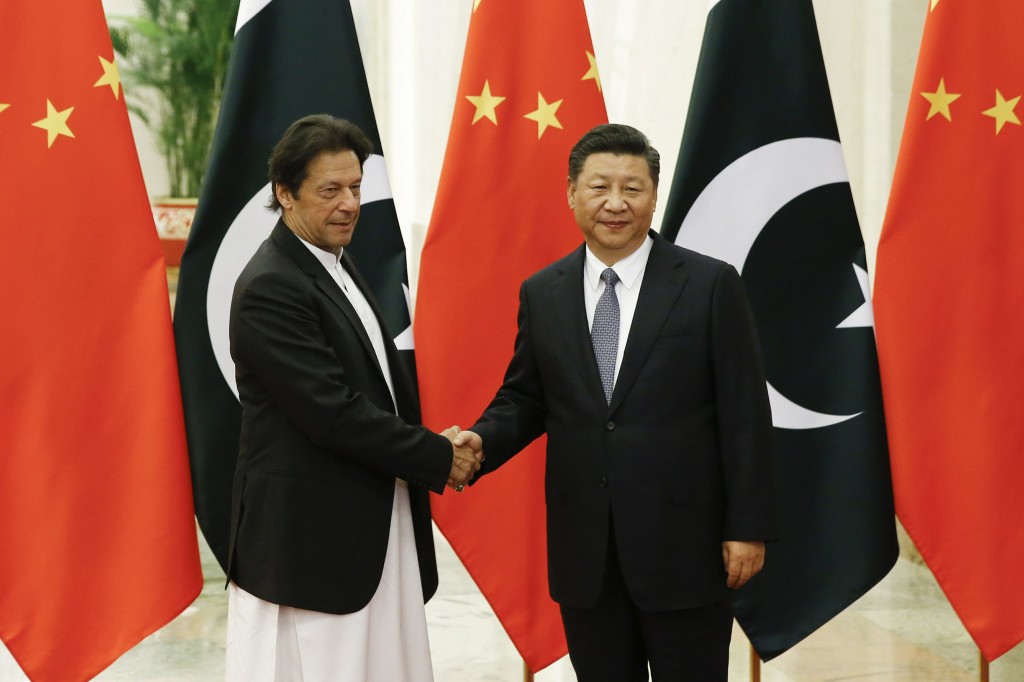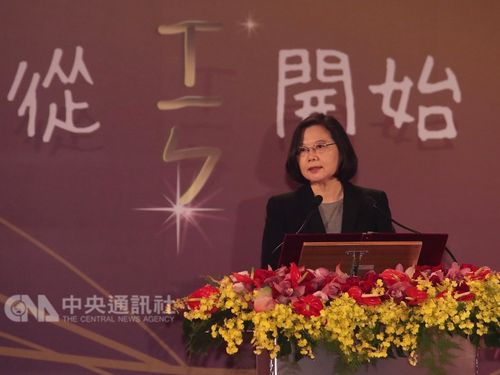
Taiwan New (16 January 2019)
The Pakistan government has announced its decision to shelve a major power plant project that was to be part of China’s Belt and Road infrastructure-building initiative.
The Dawn reported on Monday that the government cited sufficient generation capacity “for the next few years” as the reason for the project’s cancellation. A cabinet minister told the paper that the plant would have caused further financial strain of the country’s already heavily-burdened power sector.
The Rahim Yar Khan project was to be a 1,320MW imported coal-based power-generating facility financed by Chinese banks under the China-Pakistan Economic Corridor (CPEC)—a crucial strategic gambit in China’s overall Belt and Road infrastructure development initiative.
It was initially removed from the CPEC priority list in 2016 following a government ban on capacity addition on imported fuels, The Dawn reports, but was later reinstated. Now, Pakistan authorities have requested Chinese partners delete the project entirely from the CPEC list.
According to the paper, Islamabad made a decision to remove “almost 400 ‘politically motivated’ projects” from its Public Sector Development Program portfolio. A cabinet minister told The Dawn the government does not “want to waste public funds where lien has been created.”
The CPEC stands as the flagship project of the Belt and Road initiative and the gateway to inland Asia and Europe to which the new Silk Road extends. Although much focus has been given to its capacity as a transport throughway, the majority of completed Belt and Road projects in the CPEC have so far been for generating power.
Analysts believe Beijing is attempting to fuel economic development in Pakistan and bolster bilateral relations in order to improve the security environment along the economic corridor so as to contain dissidents from China’s Xinjiang Autonomous Region and prevent militants from finding training and support in Pakistan. It is also suggested Pakistan provides a “check” on its regional rival India.
Pakistan has already fallen victim to what experts have deemed China’s “debt trap diplomacy” and requested a bailout from the IMF last year, which is still under deliberation. China has exhibited a pattern of seizing national assets from countries unable to repay loans which leaves no doubt in the minds of experts that Pakistan could succumb to the same fate.
The Pakistan government has announced its decision to shelve a major power plant project that was to be part of China’s Belt and Road infrastructure-building initiative.
The Dawn reported on Monday that the government cited sufficient generation capacity “for the next few years” as the reason for the project’s cancellation. A cabinet minister told the paper that the plant would have caused further financial strain of the country’s already heavily-burdened power sector.
The Rahim Yar Khan project was to be a 1,320MW imported coal-based power-generating facility financed by Chinese banks under the China-Pakistan Economic Corridor (CPEC)—a crucial strategic gambit in China’s overall Belt and Road infrastructure development initiative.
It was initially removed from the CPEC priority list in 2016 following a government ban on capacity addition on imported fuels, The Dawn reports, but was later reinstated. Now, Pakistan authorities have requested Chinese partners delete the project entirely from the CPEC list.
According to the paper, Islamabad made a decision to remove “almost 400 ‘politically motivated’ projects” from its Public Sector Development Program portfolio. A cabinet minister told The Dawn the government does not “want to waste public funds where lien has been created.”
The CPEC stands as the flagship project of the Belt and Road initiative and the gateway to inland Asia and Europe to which the new Silk Road extends. Although much focus has been given to its capacity as a transport throughway, the majority of completed Belt and Road projects in the CPEC have so far been for generating power.
Analysts believe Beijing is attempting to fuel economic development in Pakistan and bolster bilateral relations in order to improve the security environment along the economic corridor so as to contain dissidents from China’s Xinjiang Autonomous Region and prevent militants from finding training and support in Pakistan. It is also suggested Pakistan provides a “check” on its regional rival India.
Pakistan has already fallen victim to what experts have deemed China’s “debt trap diplomacy” and requested a bailout from the IMF last year, which is still under deliberation. China has exhibited a pattern of seizing national assets from countries unable to repay loans which leaves no doubt in the minds of experts that Pakistan could succumb to the same fate.
https://www.taiwannews.com.tw/en/news/3618223
No comments yet.
-
 PAKISTAN SHELVES MAJOR PROJECT OF CHINA'S BELT AND ROAD INITIATIVE
Asia - Pacific
16.01.2019
PAKISTAN SHELVES MAJOR PROJECT OF CHINA'S BELT AND ROAD INITIATIVE
Asia - Pacific
16.01.2019
-
 TAIWAN MUST COPE FIRMLY WITH CHANGING CIRCUMSTANCES: TSAI
Asia - Pacific
16.01.2019
TAIWAN MUST COPE FIRMLY WITH CHANGING CIRCUMSTANCES: TSAI
Asia - Pacific
16.01.2019
- AZERBAIJAN TO ATTEND NATO MILITARY COMMITTEE MEETING The Caucasus and Turkish-Armenian Relations 16.01.2019
- KOBAKHIDZE MEETS PRESIDENT OF FRENCH SENATE The Caucasus and Turkish-Armenian Relations 16.01.2019
- IRANIAN FM ‘MANEUVERS’ IN IRAQ AS RIVALRY WITH US HEATS UP Iraq 16.01.2019
-
25.01.2016
THE ARMENIAN QUESTION - BASIC KNOWLEDGE AND DOCUMENTATION -
12.06.2024
THE TRUTH WILL OUT -
27.03.2023
RADİKAL ERMENİ UNSURLARCA GERÇEKLEŞTİRİLEN MEZALİMLER VE VANDALİZM -
17.03.2023
PATRIOTISM PERVERTED -
23.02.2023
MEN ARE LIKE THAT -
03.02.2023
BAKÜ-TİFLİS-CEYHAN BORU HATTININ YAŞANAN TARİHİ -
16.12.2022
INTERNATIONAL SCHOLARS ON THE EVENTS OF 1915 -
07.12.2022
FAKE PHOTOS AND THE ARMENIAN PROPAGANDA -
07.12.2022
ERMENİ PROPAGANDASI VE SAHTE RESİMLER -
01.01.2022
A Letter From Japan - Strategically Mum: The Silence of the Armenians -
01.01.2022
Japonya'dan Bir Mektup - Stratejik Suskunluk: Ermenilerin Sessizliği -
03.06.2020
Anastas Mikoyan: Confessions of an Armenian Bolshevik -
08.04.2020
Sovyet Sonrası Ukrayna’da Devlet, Toplum ve Siyaset - Değişen Dinamikler, Dönüşen Kimlikler -
12.06.2018
Ermeni Sorunuyla İlgili İngiliz Belgeleri (1912-1923) - British Documents on Armenian Question (1912-1923) -
02.12.2016
Turkish-Russian Academics: A Historical Study on the Caucasus -
01.07.2016
Gürcistan'daki Müslüman Topluluklar: Azınlık Hakları, Kimlik, Siyaset -
10.03.2016
Armenian Diaspora: Diaspora, State and the Imagination of the Republic of Armenia -
24.01.2016
ERMENİ SORUNU - TEMEL BİLGİ VE BELGELER (2. BASKI)
-
AVİM Conference Hall 24.01.2023
CONFERENCE TITLED “HUNGARY’S PERSPECTIVES ON THE TURKIC WORLD"









